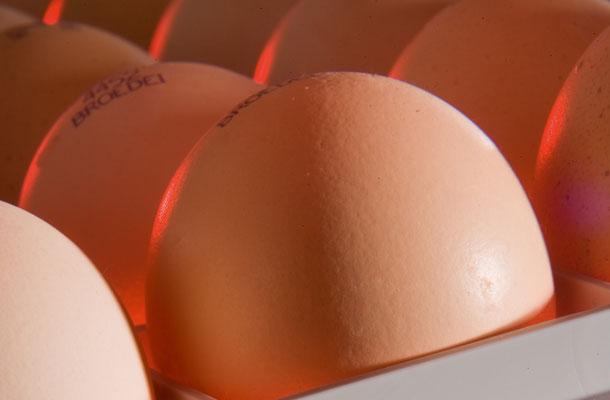Pre-storage incubation and SPIDES : New procedures in hatching egg storage
Tags: Egg handling | Whitepaper
, November 10 2014

It is common practice for hatching eggs to be stored for several days before starting incubation. If temperature (18-20°C; 64.5-70 °F) and humidity (75%) in storage rooms are controlled properly, eggs can be stored for one week without significantly reducing hatchability or chick quality. Longer periods of storage however do affect the vitality of the embryo.
Causing increased early and late embryonic mortality, a delay in hatch and reduced chick quality (Fasenko, 2007; Dymond, 2013). To overcome this, new approaches to egg storage management are being trialled among hatchery managers.
In the 1950s and -60s, Kosin (1956) and Coleman and Siegel (1966) showed that hatchabilities increased when eggs were incubated for short periods before being stored. At the turn of the century, Fasenko (Fasenko et al., 2001; Fasenko et al. 2007) showed that after six hours of pre-storage incubation, chicken embryos reach the more storage resistant hypoblast stage of embryonic development. The subsequent introduction of 3-6 hours’ pre-storage incubation in layer hen hatcheries has shown that eggs stored for more than 11 days produce 3-7% more females (Lohmann Tierzucht, Hatchery Management Guide).
In the broiler industry, embryonic temperature stimulation during pre-storage incubation has been adapted still further to deliver multiple periods of stimulation. Dymond and colleagues (2013) have shown that three-to-four ‘Short Periods of Incubation During Egg Storage’ – or ‘SPIDES’ - of 21 days increased hatchabilities and reduced hatching time when compared to the hatchabilities and hatching times of eggs stored for similar periods of 21 days (controls). SPIDES has been introduced by Aviagen and is advised in the breeding company’s ‘HOW TO no. 9: “Improve hatchability by using Short Periods of Incubation During Egg Storage (SPIDES)’.
When practicing SPIDES, eggs are transferred from the storage room to a pre-warmed or running incubator and cooled again to storage temperature as soon as eggshell temperature reaches a maximum of 32°C (90°F). The time needed to reach 32°C (90°F) varies with incubator type, but is typically after 3-6 hours incubation at 37.8-38 °C (100.0-100.4 °F). To prevent embryos from developing beyond the storage resistant stage, care must be taken that, during the complete or multiple SPIDES treatments, the cumulative time that eggshell temperature rises above 32°C (90°F) does not exceed 12 hours. (See HOW TO no. 9 for more details)
Conclusions
One treatment of pre-storage incubation or multiple treatments/SPIDES (Short Periods of Incubation During Egg Storage) has been shown to improve hatchability and chick quality if eggs are stored for seven days or more. The interval between incubation treatments is typically 5-6 days.
Prestorage incubation and SPIDES change storage management at the hatchery significantly but this may be compensated for economically by restored hatchabilities.
SPIDES management protocols need to be designed specifically for the management practices and equipment of individual hatcheries.
Guidelines for designing a hatchery specific SPIDES protocol
- Calculate a cost benefit analysis to establish whether SPIDES management is profitable.
- Prevent an increase in hatch windows by pre-warming and cooling eggs uniformly in the incubator.
- Carry out small-scale trials to establish optimum timing and length of incubation treatments during storage for your specific hatchery and egg types.
- Start SPIDES only when all eggs are pre-warmed to 25°C.
- Perform SPIDES treatment only when eggs are placed on setter trays to assure uniform egg temperature during incubation. SPIDES on paper trays is impossible.
- Cool eggs in the incubator as soon as eggshell temperature reaches 32 °C (90 °F) and before putting the eggs back into the storage room.